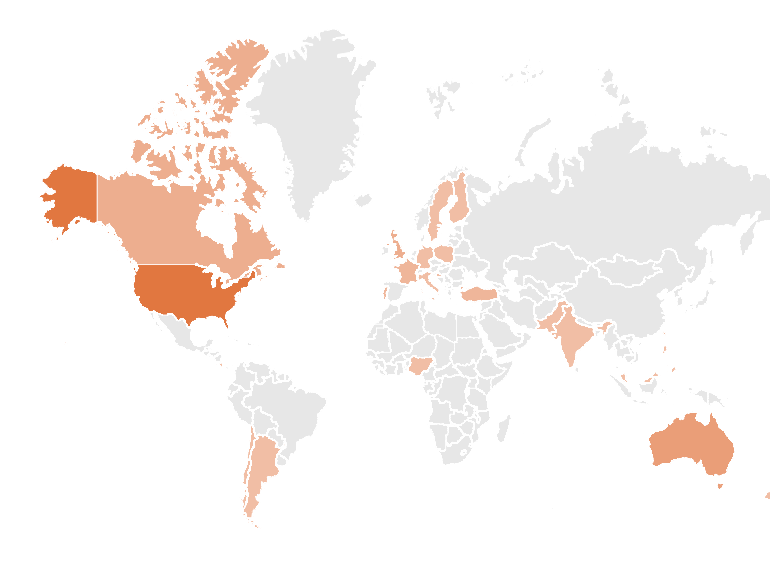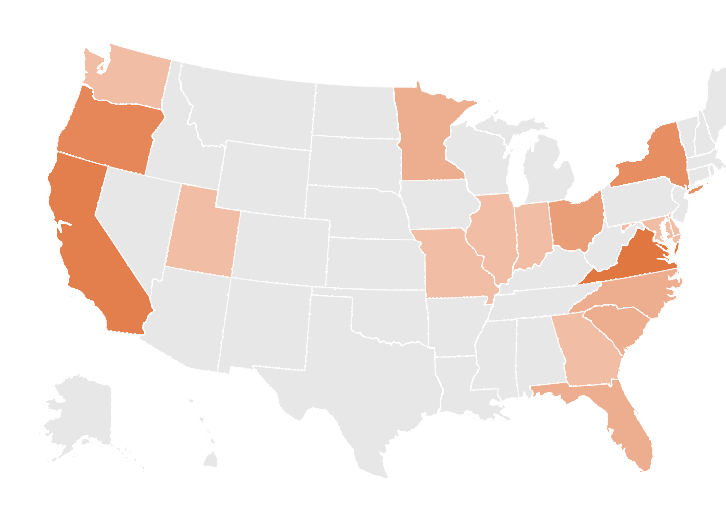Special Education Today Newsletter 3(6)
There was something happening this past week?
Here we are again, starting another week (and a new month) with a look back at the week of 23 July 2023. Yep, it’s another edition of Special Education Today’s Newsletter.
Accordingly, here comes some updates, a review of previous posts, and some comments. Beware: Those comments might seem a bit like a rant.
Stay tuned…we’ll be right back.
Table of contents
During the past week, there were seven new posts on the site. I sent email notices to everyone about six of these, but for one of them I sent a notice only to paying subscribers.
Special Education Today Newsletter 3(5): What do you mean, I fell on my face last week?
New kid on the block!: How can I refer to someone with more seniority than I have as a "new kid?"
ASAT news & more: What’s new? What should one know?
O. Ivar Lovaas, 1927-2010: How about this giant in autism?
Melding art, ASL, and accessibility: Can you make it all the way through 3 min without liking this message?
E. M. Hetherington, 1926-2023: Mavis wasn't a special educator, but she was special and she was an educator
More kindness: What does my new shirt look like?
Status
SET lost a couple of subscribers this past week, but it gained more. The net change was a growth of three free subscribers. Among those, one subscriber converted to paid status. Yay!
There were nearly 4000 views of pages on the site last week. I suppose a couple of y’all must be hitting refresh repeatedly. Anyone given an AI bot out there in the wild some directions to revisit SET over and over again?
There are at least a couple of folks who don’t seem to be on summer vacation. Clay K., Jane B., Vince W., and Dan H. seem to have been clicking links recently.
The first of these maps shows countries around Earth from which subscribers come to SET; darker colors indicate a higher proportion of the total number of subscribers. The second map shows the US states that have generated the most (by proportion) of paying subscribers.
Comments
Before I turn to a couple of comments, I have an image I wanted to share. It’s from our regular walk down by the river.

Some readers may not be surprised when I say that I am skeptical about the explanatory power of motivation. Let me just jump directly into it (with both feet and wearing fisherperson’s waders): I have serious doubts that a person’s motives, her intentions, her will have much at all to do with behavior.
I’m pretty sure I mentioned elsewhere that I admire the work of my former colleague, the late Dan Wegner. In his book, The Illusion of Conscious Will,1 Dan presented a thoughtful, literate, and detailed explanation for the many reasons that we humans should not delude ourselves by falling back on will as the reason for our actions. The problems are myriad. Examples: (1) If will causes actions, what causes will to cause them? Is there just an endless regression of wills causing wills, like increasingly smaller Russian nesting dolls? (2) How could it be that we experience influence over actions when we have virtually no such influence (Even though someone else controlled the mouse, “I planned to make that computer cursor stop on that image!”)? (3) What is th scientific advantage of putting a subjective box between environment and behavior? What do we gain when, given that we know Behavior B occurs under Conditions A, we say that there is an additional mental side track between the two? (4) What if neural imaging shows that the parts of one’s brain that control motor activity “fire” before the parts of the brain that control the feelings of deciding to move one’s arm—yes, I do mean that the behavior starts before the “decision” to act occurs. We could go on….
The person in the street almost certainly would have difficulty with his argument. “Of course I make decisions. You can’t tell me I don’t control my own actions. I decide whether to go to a movie or go home and get to bed early, don’t I?” Of course, if one’s evidence is predicated on introspection and one’s feelings are strong…well, it’s pretty hard to shake strongly held beliefs.
So I shan’t expect to do so in a few paragraphs of a newsletter that folks probably read on the fly, not having the time to delve deeply into the ideas, arguments, and data. But, I would like to point out a correlated drawback that concerns education and kids with disabilities.
We educators too readily employ belief about conscious will when explaining child behavior. We want to know why little Suzy punched that other, smaller child. We want to know why Guillermo ran out of the room crying. We want to know why Francis hasn’t learned to read.
Suzy punched him because [she wanted to get even | she needed to take out her frustrations on someone | she was just in a bad mood and lashed out | she had see her parent staggering drunkly last night…].” Guillermo ran out of the room crying because [he was afraid to show his true emotions to the other boys | someone had used an ethnic slur | he is deathly afraid of spiders and another child drew a picture of one…].”
Why hasn’t Francis learned to read? “Well, he’ll be fine. He’s a smart kid. He’ll choose to learn sometime soon. He’s just not motivated. When he’s ready to learn to read, he’ll learn.” Hunt? That’s all it is? Just flip the switch to “Motivation on” and he’ll be fine? First off, the longer he goes without learning to read, the harder it’s going to be to teach him to read. Second off, if he can’t read, he doesn’t have any choice…he can’t choose to read.”
Now, you might say, “Oh, John. What about functional assessment? Isn’t that predicated on ‘motivation?’” Well, yes and know. In that case, I think we behavior analysts are using the word (and concept) of motivation as a shorthand way of communicating. Rather than saying “under Conditions A, Jimmy is more like to do R than he is under Conditions X.” It’s a lot easier to say “Jimmy’s B is ‘escape motivated.’” It’s also a lot sloppier.
Okay. Okay. You got this far. Now, here’s the pay-off question: Why are those geese swimming upstream?
So, anyway, take care of each other, eat and sleep well, and please be sure that you teach your children well.
JohnL
SET editor guy
Charlottesville, VA, USA, Earth
Somewhere I think I have a picture of me reading Dan’s book while on vacation in the San Juan Islands. Outside the frame were my two vacation mates (Pat and Barb, if you must know) making scoffing noises about the idea—the very idea—that anyone would consider something so obvious as will to be an illusion.



